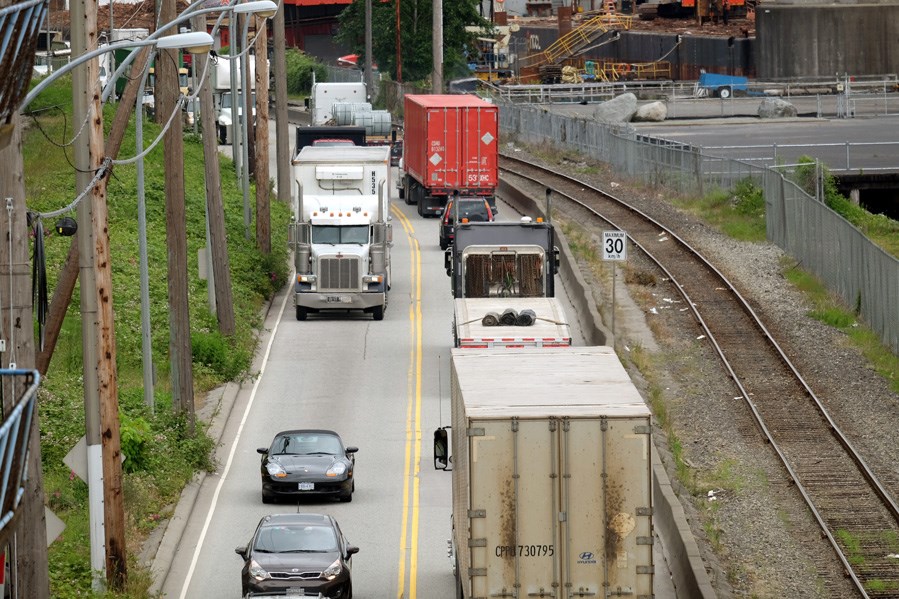Metro Vancouver will ask the public to approve a 0.5 per cent increase to the provincial sales tax to generate funding to expand the regional transit and transportation system.
On Friday, the region’s 21 mayors voted on the boost on a “dedicated regional tax" for transportation expansion. It will be forwarded to the B.C. government for final approval before going to a referendum, likely through a mail-in ballot that will go to about one million residents in mid-March and run through April next year.
Mayor Jonathan Cote joined the majority of Metro Vancouver's mayors in supporting the plan. Mayors of Burnaby, Maple Ridge and West Vancouver were opposed.
The province has ordered the mayors’ council to hold a referendum before June 30 next year. If the referendum fails, the next opportunity to put new funding sources to the public is during the next municipal election in 2018. The referendum would see ballots issued in 14 languages.
The regional sales tax increase, which would be the first in Canada and would be on top of the existing seven per cent PST, is believed to be the fairest and most affordable funding source for all homeowners because it has a broader base than the other proposed sources that included a vehicle levy or carbon tax. It also would not unfairly penalize drivers.
The mayors' council estimates the increase, which would generate $250 million in the first year, would cost the poorest 20 per cent of Metro Vancouver residents another $50 per year and the average homeowner $125 per year.
The mayors' council says new funding sources are needed to provide more transportation services, including a new four-lane Pattullo Bridge, more buses, light rail for Surrey and a subway in Vancouver to serve another one million more people in the region by 2040.
At the moment, TransLink can only use property taxes, gas taxes or fares as its main sources of revenue, and the mayors say they refuse to hike property taxes any further.
If the funding is approved, the mayors' council expects it can move ahead quickly with bus, SkyTrain and cycling expansions and design work on Surrey's light rail and Vancouver's subway, while negotiating with the federal and provincial governments for additional funding of $1.5-billion each.
The mayors' council hopes to start construction on a subway in Vancouver within the next five years and construction of Surrey's first light rail in seven years.
Several coalitions involving business, labour and students, have already sprung up to help sell the referendum to the public.
Iain Black, the president and CEO of the Vancouver Board of Trade, said the newly-minted Better Transit and Transportation Coalition is unified in saying the region can’t afford to sit idle on congestion any longer. Many groups, like the Surrey and Vancouver boards of trade, say they will play a role in marketing the referendum.
Some fear there’s not enough time to educate the public about the supporting the referendum question.
The mayors’ council considered three potential sources of funding, including: an increase to the existing B.C. carbon tax, which would be charged on fossil fuel purchases within Metro Vancouver; an increase to the existing provincial sales tax, which would be charged on PST-eligible purchases in the region; and an annual vehicle registration fee, or a combination of these tools.
In June, the mayors’ council announced a 30-year vision for addressing transportation and transit needs in the region. Estimated to cost $7.5 billion, the plan would require some funding from federal and provincial governments, but would also require an additional $285 million per year to pay the region’s share.
Provincial legislation requires a referendum before the end of June to approve the new funding tool.
With files from The Record



